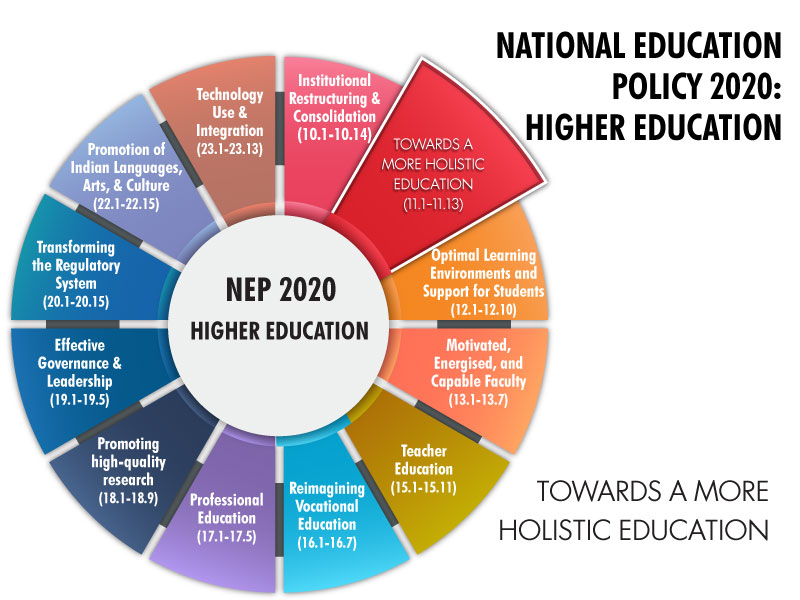1. Assessments of educational approaches in undergraduate education that integrate the humanities and arts with STEM have consistently showed positive learning outcomes, including increased creativity and innovation, critical thinking and higher-order thinking capacities, problem-solving abilities, teamwork, communication skills, more in-depth learning and mastery of curricula across fields, increases in social and moral awareness etc, besides general engagement and enjoyment of learning.
2. A holistic education shall be, in the long term, the approach of all undergraduate programmes, including those in professional, technical, and vocational disciplines.
3. The undergraduate degree will be of either 3-or 4-year duration, with multiple exit options within this period, with appropriate certifications. The 4-year programme may also lead to a degree ‘with research’. A student can obtain a diploma after completing 1 year, or an advanced diploma in a discipline or field (including vocational and professional areas) after completing 2 years of study or obtain a bachelor’s degree after a 3-year programme. There shall be an Academic Bank of Credit (ABC) which could digitally store the academic credits earned from various recognised HEIs so that the degrees from an HEI can be awarded taking into account credits earned.
4. HEIs will have the flexibility to offer different designs of Masters programmes, (a) there may be a two-year programme with the second year devoted entirely to research for those who have completed the three-year Bachelors programme; (b) for students completing a four-year bachelor’s programme with Research there could be a one-year Masters programme and (c) there may be an integrated five-year Bachelor’s/Masters programme.
5. Model public universities for holistic education, at par with IITs, IIMs, etc., called MERUs (Multidisciplinary Education and Research Universities) will be set up and will aim to reach the global status of, e.g., the Ivy League Universities in the U.S.
6. States will have the flexibility to decide on the medium of instruction and would be encouraged to conduct more academic programmes in Indian languages or mother-tongue.
7. HEIs as part of multidisciplinary education will focus on research & innovation by setting up start-up incubation centres, technology development centres, centres in frontier areas of research, greater industry-academic linkages, and inter-disciplinary research including humanities/social science research.
